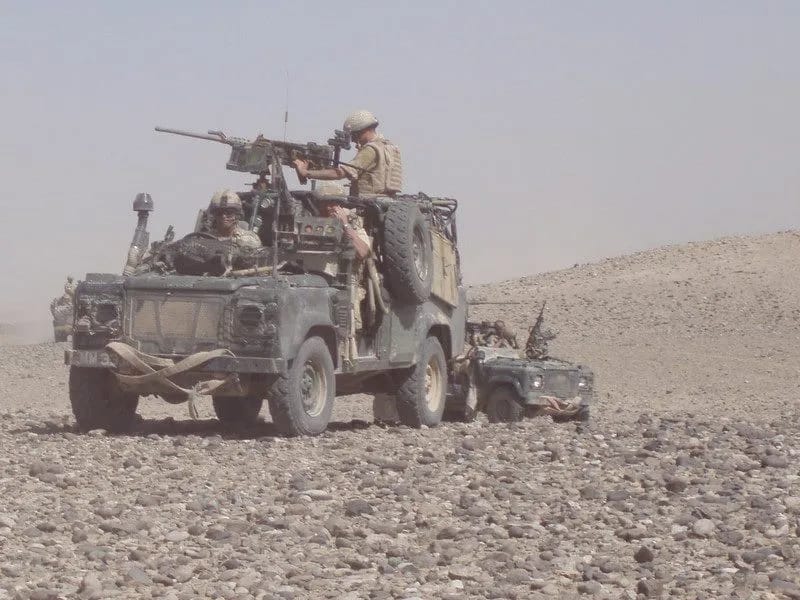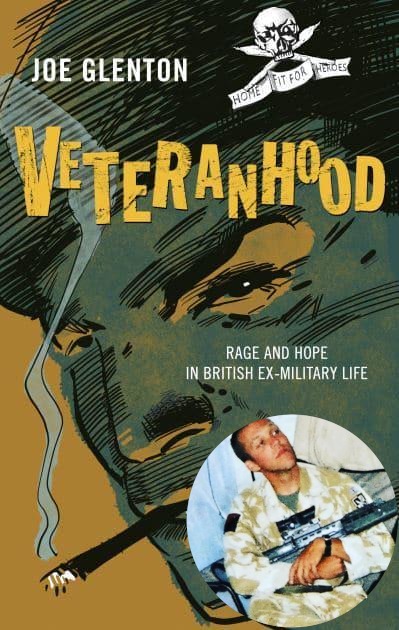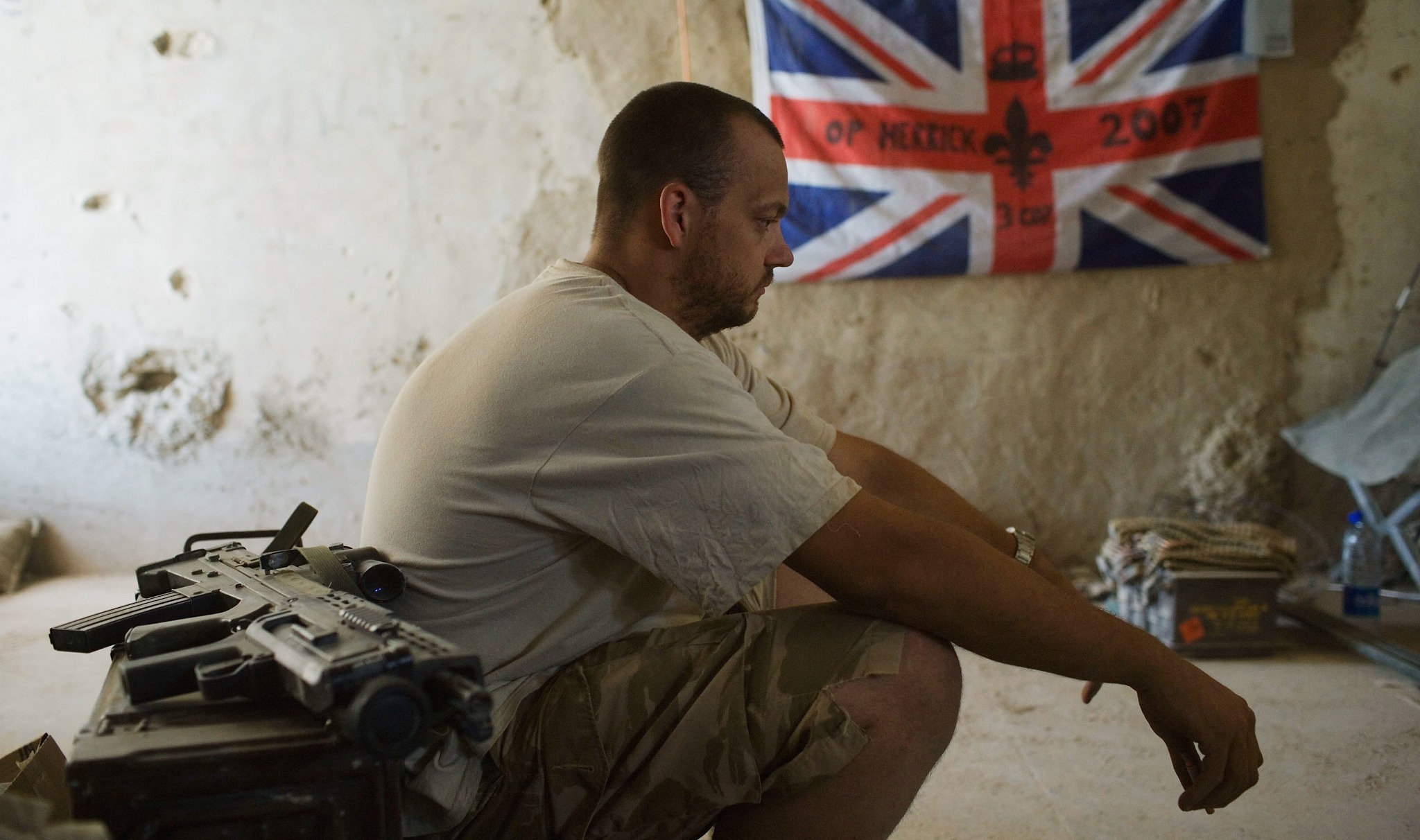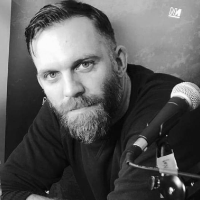Since the official end of UK combat operations in 2014, the Afghanistan war has felt like a forgotten chapter of recent British history – at least for veterans of the conflict.
Only in recent weeks, as the two decades-long occupation finally collapsed into a chaotic withdrawal, has the country fought over by a generation of UK military personnel made headlines again.
But if the seizure of Kabul by the Taliban allowed for a minute of self-reflection, that moment quickly passed.
In the end, images of soldiers holding babies at the airport, and a somewhat bizarre bid by a former Royal Marine to extract hundreds of rescue animals from the country, became the tolerated UK media narratives.
Since the final western military aircraft left Kabul, it has been announced that those UK personnel involved in the evacuation will be recognised in the New Year’s Honours list. Alongside this, an inquiry – of extremely limited scope, naturally – will be held by parliament’s Defence Committee.
None of these measures seem likely to satisfy the nagging questions veterans of the war must now confront. During the evacuation, I had many conversations with ex-military people who served in the country over the 20 years’ occupation.
Some were sent in during the early days, post 9/11, during and after the rapid defeat of the Taliban. Most, like myself, were there for the second brutal phase of the war between 2006 and 2014, during which the majority of the 457 UK military deaths occurred. Others had deployed in mentoring or security roles in the quieter years after the 2014 withdrawal.
All of us looked on with concern as the Taliban rapidly re-took the country and then Kabul in August. Individual assessments of the war vary among former personnel. But if there are common themes they are feelings of loss, anger, confusion and, most acutely, a sense of betrayal.
“Deep shame”
“My feelings are deep shame and embarrassment. We asked the Afghan civilisation to trust us and believe in us, only to abandon them when they really needed us,” said Mike, a former Royal Engineer who deployed to the country in 2006 as part of an EOD (explosive ordnance disposal) team.
Mike recounts his experiences working in and around FOBs (forward operating bases) in places like Sangin in Helmand Province – the epicentre of the fighting during the hardest years of the war.

He and his team spent most of their time dealing with mine-strikes and disposing of rocket-propelled grenades which had failed to detonate. He recalls being aboard a Chinook helicopter which narrowly escaped being brought down by enemy fire. He wonders, as many of us do, how the war will be remembered.
Mike makes the parallel between the fall of Saigon and the Taliban’s capture of Kabul, a comparison which US president Joe Biden was quick to reject during the frenzied airlift. It would be “ludicrous” if we do not “think deeply about this tragedy across the whole of our society”, he said.
“Unsurprised”
Unlike large sections of the press, and particular ministers like recent foreign secretary Dominic Raab, many veterans were not shocked by the speed of the collapse and the ferocity of the Taliban advance.
Tom (anonymised) served two tours as a Royal Marine, one in a rifle company and one on Viking, the tracked armoured fighting vehicles used by 3 Commando Brigade.
“Unsurprised,” he told me. “The UK didn’t have any long-term goals when it initially invaded Afghanistan, save possibly ‘regime change’. It became clear to me fairly early doors that peace in Afghanistan was fragile, and that total defeat of the Taliban was prevented primarily by the sheer scale of Afghanistan compared to the resources on hand to secure the country.”
Tom was also aware of allegations, as recently reported by Declassified, that Pakistan, a major UK ally in the region, supported and sheltered the very insurgents he and his fellow marines were fighting.
“Of course, Pakistan providing a safe haven for the Taliban, including OSB [Osama Bin Laden] himself, hasn’t helped matters and it is a failure of foreign policy on behalf of the ISAF [International Security Assistance Force] allies that Pakistan didn’t come under greater pressure to cut that out.”
Those like Tom who spent time “on the ground” – military parlance for deploying outside the wire of a military base – seem to have an acute sense of how weak government influence always was outside Kabul. And how fragile the Afghan armed forces, which many UK personnel helped train and partnered with in combat, always were.
“There is simply no excuse for any political or military commander or any other central planner to not know the reality of the widespread corruption in Afghan central and local government, and the reality of the ill-prepared ANA [Afghan National Army] with no air support,” Mike told me.
“The reconquest of Afghanistan by the Taliban must have been an obvious and realistic and inevitable outcome.”
Betrayal
Chris Bamford served in the Royal Signals and worked with Afghan translators to intercept radio communications, turning the information into workable intelligence. “We had two interpreters with us and would have been useless without them,” he told me.
But Chris is unclear what happened to those Afghans he worked with. “I’m not sure any got out, but at least two were told somewhere that their work would get them into the UK. Hence the betrayal being all the fucking worse, because if they have been left behind after being promised asylum…”

This sense of Afghan comrades being stabbed in the back is a feature of virtually every conversation with UK Afghanistan veterans. But also something deeper kept recurring: a sense that we never really knew what the war was about anyway.
“I have been conflicted about the war since getting back. I am disgusted that the UK government basically abandoned people to their fate,” Chris added. “The worst part is thinking that it was to do something good and then realising it was always unclear why we were there in the first place.”
Blame game
The withdrawal has quickly led to partisan finger-pointing. US centrists have used the collapse to accuse Donald Trump, whose February 2020 withdrawal deal with the Taliban foreshadowed the chaos at Kabul airport.
Others in the US and the UK have assigned blame to Joe Biden, who oversaw the final chapter of the occupation.
While UK veterans I interviewed do generally blame US leaders to a degree, Biden and Trump remain rather distant figures who, in any case, appeared on the stage long after major UK operations had wound down. For Chris Bamford, the culprits are closer to home.
“Tony Blair et al invaded a country and overthrew the government with no appropriate withdrawal plan, and then the Tories had 10 years to come up with one too”.
He also blames the press for misreporting the war: “I think the media played a fantastic part in falsely reporting pretty much everything about Afghanistan since 9/11. Obviously, there is an American element, but TB [Tony Blair] decided to join in, and so he should take responsibility for every injury and death.”
“Intelligence was manipulated”
But some put the blame elsewhere. Dave (anonymised) served in Afghanistan as a member of the British army’s Intelligence Corps. His roles include human intelligence, target analysis for special forces and counter-narcotics. For him, overall responsibility for the Afghan disaster falls on the US.
“I place blame firmly with the Americans. Intelligence was manipulated to fit the operational picture. The public were told that 9/11 was the start point but I do not believe that narrative. The question is why did we involve ourselves? I struggle with this question.”
He added: “Having worked with the US on occasions it seemed they were almost clutching at straws with no real direction. Afghan was unwinnable from the start, it became a proxy war. We should never have deployed.”
Asked what lessons could or should be learned, Dave had a straightforward prescription: “Cut ties with the US when their foreign policy conflicts with international law and have more control over the military-industrial complex.”
He added: “More accountability within the intelligence agencies and politicians who make very poor decisions. We can’t seem to learn from the last war…. Iraq was a failure and Afghanistan has been a failure.”
Pride?
On 7 September, Boris Johnson told MPs in the House of Commons: “We can be proud of our Armed Forces for everything they have achieved, and for the legacy they leave behind. What they did was in the best traditions of this country.”
“We should never have deployed.”
– Dave, intelligence corps veteran
This was an attempt to set the narrative, as well as offer a degree of succour to the many thousands of current and former soldiers, sailors and airmen who served in Afghanistan over two decades.
But the military community is split on the matter of whether there is anything to take pride in.
Former Royal Marine Tom, for example, does take some solace in the idea he and his comrades achieved something in the country. “I am proud of what we achieved there. I’m not convinced the public, or the UK government are. I’m certainly ashamed of the way we have abandoned those who supported us and those who we supported in Afghanistan.”
Former military intelligence soldier Dave takes the opposite view, posing a series of questions:
“Proud of killing civilians? Forcibly enrolling Afghans regardless of their consent? Lying to detainees? Being told to make the INT [intelligence] picture fit the operation? Using Afghans as sources or interpreters and promising them a UK passport? Turning a blind eye to what can only be described as illegal practices and having people that I knew die for what I now know was mis-sold? I am not proud but disgusted.”
Legacy of war
The long-term impacts of British failure and defeat in Afghanistan are difficult to quantify. However, military charity Combat Stress reported a spike in calls to its mental health hotline during the evacuation.
People talk of the potential impacts of “moral injury” – a signature injury of the ‘war on terror’ – in which the sufferers’ moral and ethical codes are punctured by the reality of what they or their commanders have done.
It seems likely that the rounds of finger-pointing and blame-shifting will calcify into enduring narratives of betrayal. Whether these will mutate into the kind of right-wing stab-in-the-back theories which gripped post-Vietnam America is an open question.
Asked about the vulnerabilities of our cohort of veterans, Mike, now a social worker, touched on some of war’s timeless truths. The Afghan war, which he believes was clearly “unwinnable” from as early as 2006, was fought “largely by brutalised young men that were already carrying a very heavy load of unknown and unresolved emotional trauma from the usual dose of intergenerational abuse.”
“My only conclusion is that perhaps the ‘lions led by donkeys’ metaphor still applies”, he concludes.


